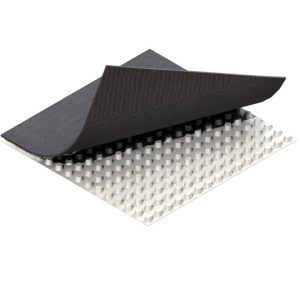Anti-Aging Peptides in Cosmetics: Mechanisms and Applications
# Anti-Aging Peptides in Cosmetics: Mechanisms and Applications
## Introduction
The quest for youthful, radiant skin has led to significant advancements in cosmetic science. Among the most promising ingredients in modern anti-aging formulations are peptides – small chains of amino acids that play crucial roles in skin health and rejuvenation. These bioactive molecules have revolutionized the cosmetic industry by offering targeted solutions to various signs of aging.
## Understanding Anti-Aging Cosmetic Peptides
Anti-aging peptides are short protein fragments typically consisting of 2-50 amino acids. Unlike larger proteins, their small size allows them to penetrate the skin’s barrier effectively. These peptides can be classified into several categories based on their mechanisms of action:
– Signal peptides: Stimulate collagen and elastin production
– Carrier peptides: Deliver essential trace elements to skin cells
– Neurotransmitter-inhibiting peptides: Reduce muscle contractions (similar to Botox effects)
– Enzyme-inhibiting peptides: Prevent collagen breakdown
## Mechanisms of Action
### Collagen Stimulation
Many anti-aging peptides work by signaling fibroblasts to increase collagen production. As we age, collagen synthesis decreases by approximately 1% per year after the age of 20. Peptides like Matrixyl (Palmitoyl Pentapeptide-4) mimic fragments of collagen and elastin, tricking the skin into thinking there’s damage that needs repair, thereby stimulating new collagen formation.
### Antioxidant Protection
Some peptides possess antioxidant properties that neutralize free radicals – unstable molecules that contribute to oxidative stress and premature aging. Copper peptides, for example, not only stimulate collagen but also act as powerful antioxidants.
### Moisture Retention
Certain peptides help maintain skin hydration by supporting the skin’s natural moisture barrier or stimulating the production of hyaluronic acid, a molecule capable of holding up to 1000 times its weight in water.
## Popular Anti-Aging Peptides in Cosmetics
Several peptides have gained prominence in cosmetic formulations:
– Argireline (Acetyl Hexapeptide-8): Often called “Botox in a bottle,” it reduces fine lines by inhibiting neurotransmitter release
– Palmitoyl Tripeptide-1: Stimulates collagen, elastin, and glycosaminoglycan production
– Copper Peptides (GHK-Cu): Promote wound healing and have antioxidant properties
– Palmitoyl Tetrapeptide-7: Reduces inflammation and improves skin firmness
## Clinical Evidence and Efficacy
Numerous clinical studies support the efficacy of cosmetic peptides:
– A 12-week study showed Matrixyl reduced wrinkle depth by up to 45%
– Argireline demonstrated a 30% reduction in wrinkle depth in clinical trials
– Copper peptides have been shown to improve skin elasticity by up to 18% after 4 weeks of use
However, results vary depending on peptide concentration, formulation, and individual skin characteristics.
## Formulation Considerations
Effective peptide formulations require careful consideration of:
Keyword: Anti-aging cosmetic peptides
– Stability: Many peptides are sensitive to pH, temperature, and light
– Penetration: Molecular size and lipophilicity affect skin absorption
– Synergy: Combining peptides with other actives like retinoids or vitamin C can enhance results
– Concentration: Most effective between 1-10% in formulations
## Future Directions
The field of cosmetic peptides continues to evolve with exciting developments:
– Personalized peptide cocktails based on genetic testing
– Smart peptides that respond to specific skin conditions
– Peptide-mimetics with enhanced stability and penetration
– Combination therapies with growth factors and stem cell technology
## Conclusion
Anti-aging peptides represent a sophisticated approach to skin rejuvenation, offering multiple mechanisms to combat signs of aging. While not miracle cures, when properly formulated and used consistently, they can significantly improve skin texture, firmness, and overall appearance. As research advances, we can expect even more innovative peptide-based solutions to emerge in cosmetic science.


